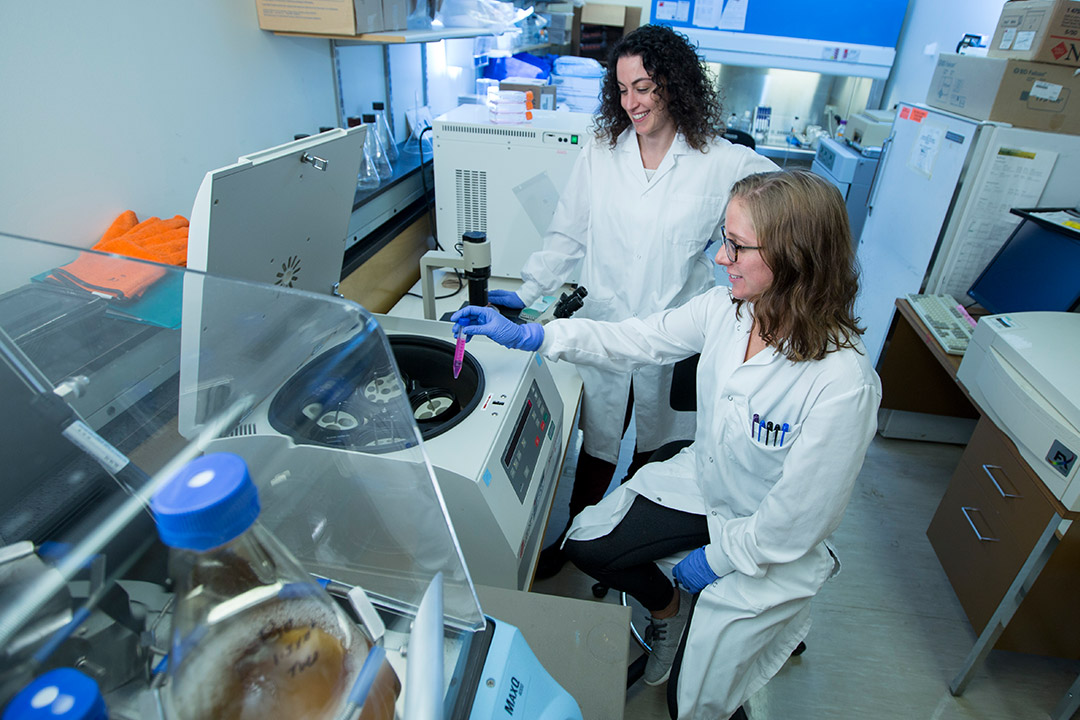
HIV virus fighter linked to cancer mutations
University of Saskatchewan researchers have found the onset of breast, lung and other cancers may be connected to malfunctions of the immune system as it combats specific viruses such as HIV.
By Federica Giannelli“Our findings could change the way we treat cancer,” said microbiology professor Linda Chelico. Her research, funded by the federal agency NSERC, was recently published in Nucleic Acids Research and a related project was published in Nature Communications.
Chelico and PhD student Madison Adolph have found evidence that three enzymes in the APOBEC3 family, which guards the immune system with seven enzymes in total, may “go rogue,” triggering mutations in human DNA that may lead to cancer over time.
The results could open up the possibility for developing inhibitors that suppress these enzymes when they malfunction, or developing special tests to monitor their levels in the body.
Scientists have previously known that these enzymes are linked to cancer mutations and may also appear in cancer patients not infected by viruses. But until now they had not known how the enzymes mutated the human genome.
“The enzymes we study are very important for building a defence against viruses, but some specifically activated to fight HIV infection may end up being expressed in the wrong place at the wrong time, causing unintended mutations,” said Chelico.
Read the full article on the University of Saskatchewan website.
